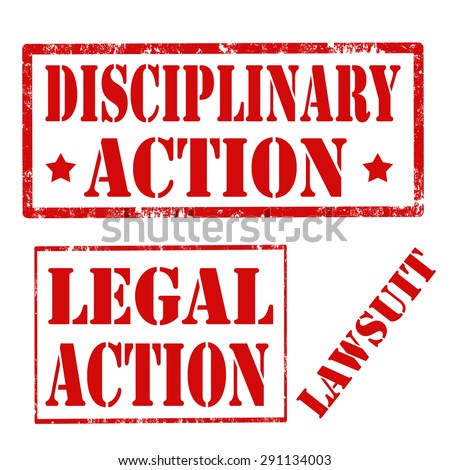Lawyer Cleta Mitchell Let Her Freak Flag Fly In Jan
Representative democracy is fine, but let’s not carried away here.
That appears to be the stance taken by Trump lawyer Cleta Mitchell in her acrimonious interview with the January 6 Select Committee on May 18, 2022. Mitchell, who was swiftly un-personned from Foley & Lardner after her involvement with the Trump campaign’s efforts to overturn President Biden’s Georgia win, seemed largely unconcerned with the expressed wishes of the voters.
Here she is explaining that state legislators are entitled under the Constitution to simply reject the results of any presidential election if they don’t like the outcome:
Let me make something very clear. The Constitution of the United States grants plenary power to state legislatures to chose the electors of the state. Congress has enacted a statute which is an enabling law, which I happen to think is unconstitutional, because that power granted in the Constitution to state legislatures is complete and total. There’s nothing in the Constitution about allowing people, citizens to vote on electors. Now, that is something that legislatures have over time decided they want to do. But in my view, according to the Constitution, that’s an advisory role that happens because the legislature has created a mechanism to conduct the election. And assuming that that mechanism is carried out in accordance with the statutes that the legislature has enacted to make it possible for the citizens to weigh in and make their voices heard, then the legislature can use — choose to use what the people have decided. But that’s not in the Constitution. And so I think that that is one of the things that we hadn’t really — as a country, we haven’t focused on that. But that is what the Constitution says. So it’s not like picking an alternate slate of electors. The legislature has the authority to choose the electors. And they don’t have to ask anybody’s position, in my view.
And here she is explaining that Congress has the constitutional right to simply reject a state’s electors for any reason or no reason at all:
I have got a report that somebody may have sent to me last year that goes through the history of the United States and the number of times that members of Congress have said I’m not going to vote to certify these electors. And they don’t have to have a reason. They can just say I’m not voting for this. And they have done that. And there have been a lot more Democrats doing that than Republicans over the years. So there’s a long history of that happening. Now, Mike Lee is a constitutionalist and he came to believe that, absent a competing set of electors that he had, he did not have the constitutional prerogative to reject the electoral slate. That’s up to him. I respect that. I don’t agree with it, but I’m not going to argue with Mike Lee about the Constitution, for heaven’s sake.
In fact, she seems pretty skeptical about voting across the board, alleging that money spent by the Chan Zuckerberg Initiative to increase voter participation amounts to a violation of state election law. Similarly, she pointed to increased ballot access measures passed during the pandemic as “a pretext for upending the duly enacted laws passed by state legislatures.”
“Now, you may have a different view, but we’re lawyers and we’re both entitled to read the law in the way that we think is appropriate,” she said, implicitly acknowledging that her viewpoints are somewhat outside the mainstream, adding that, “I don’t think people ought to be massacred or put in jail or disbarred because they have a different legal view than you do.”
Who is being massacred, Cleta?
If these cockamamie theories sound familiar, it’s because they were also advanced by Trump’s Coups 4 Dummies lawyer John Eastman, whom Mitchell referred to as “one of the most brilliant lawyers I know, and he’s brilliant on constitutional law and constitutional history.” Eastman was also separated from his job at Chapman University Law School when his connection to the fake electors scheme came to light — and that’s not the only connection between these two.
Mitchell made repeated reference in her testimony to one of the Trump election challenges in Georgia, not only making false assertions about a dastardly failure to get a judge assigned in timely fashion (the delay was the fault of Team Trump jumping the gun on an appeal), but claiming that she’d presented proof of thousands of illegally cast votes, more than sufficient to overturn Biden’s margin of victory.
It would appear that this was what Eastman was referring to in a December 31, 2020 email in which he wrote: “Although the President signed a verification for [the state court filing] back on Dec. 1, he has since been made aware that some of the allegations (and evidence proffered by the experts) has been inaccurate. For him to sign a new verification with that knowledge (and incorporation by reference) would not be accurate.” US District Judge David O. Carter abrogated attorney-client privilege as to this email under the crime-fraud exception, since Eastman was apparently trying wangle his way around having Trump sign a false attestation. But the fact that even Eastman knew that Mitchell’s numbers were nonsense is … pretty funny. And not for nothing, but Trump went on to sign it anyway.
Also funny were Mitchell’s dogged attempts to ignore the inconsistencies in her own position. Why was she bothering to sue if the state legislature and US Congress could simply reject the electors out of hand? Why was she only challenging ballot access initiatives and COVID modifications in swing states where Democrats won? Wouldn’t her fakakta theories mean that Democrats were entitled to reject red state electors if they controlled the Senate? How could she possibly be claiming attorney-client privilege for her communications with the White House Counsel’s Office? And if she thought Mike Pence’s role on January 6 was “ministerial,” why did she suggest that he reject Georgia’s electoral slate citing pending litigation?
But no issue caused greater fireworks than her denial that she had anything to do with the fake electors scheme, despite multiple communications suggesting otherwise:
STAFF COUNSEL: Senator Lee says, “I think that’s the best way to frame this, that our role (as to any state’s electoral votes) is triggered by the existence of a competing slate of electors?” And then Senator Lee says, “That seems to be the sweet spot for getting my colleagues to engage.” You say, “Yes. That’s why I was asking the White House today to organize that ASAP.” I’m trying to understand — I’m trying to understand what Ms. Mitchell is saying.
MITCHELL: It seems to me that it speaks for itself. The communications speak for itself.
STAFF COUNSEL: Are you refusing to answer the question I asked you?
MITCHELL: I’m not refusing to answer. You keep asking me the same thing and I keep telling you the same thing.
STAFF COUNSEL: I don’t think you’ve answered.
MITCHELL: I think state legislatures have a certain authority and I think members of Congress have a separate distinct responsibility and authority. And I don’t think any of this, none of it, should rise to the level of your badgering me, because I’m a lawyer and I’m having a conversation with a senator about the constitutional prerogatives of the Senate.
STAFF COUNSEL: Ms. Mitchell, I’m not —
MITCHELL: Yes, you are. And I’m not refusing to answer. I’m telling you that the document speaks for itself. That’s the conversation. That’s roughly the way I remember it. And I would like to move on.
The ugliness went on for several minutes, at the conclusion of which Mitchell finally conceded that, “Perhaps, yes,” she was suggesting that she’d told the White House that they needed to organize “competing sets of electors” to satisfy the members of Congress who’d have to reject the ones legitimately chosen by the voters.
At the end of which she was neither massacred or jailed. She wasn’t even disbarred! But no doubt if you asked her, Mitchell would tell you that she’s the real victim here.
Cleta Mitchell Transcript



